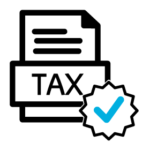Apply Financial Sanctions and Visa Restrictions
The United States will continue to actively apply financial sanctions and visa restrictions to ensure corrupt actors cannot benefit from their ill-gotten gains in the United States. We will continue to actively enforce the Global Magnitsky Human Rights Accountability Act and our visa restriction authorities and welcome civil society input into this process.
Completion Status:
*commitment is not specific or/and not measurable
Commitment filtering:
The commitment refers to enforcing a specific law, the Global Magnitsky Human Rights Accountability Act (GloMag)[1], and applying financial sanctions and visa restrictions as a specific anti-corruption mechanism. The Department of the Treasury’s Office of Foreign Assets Control is responsible for applying economic sanctions,[2] and the State Department is responsible for implementing visa restrictions.[3]
The GloMag Act requires the president “to consider information provided jointly by the chairperson and ranking member of each of the appropriate congressional committees”, such as Senate Banking and Foreign Relations and House Financial Services and Foreign Affairs, as well as “credible information obtained by other countries and non-governmental organisations that monitor violations of human rights” or corruption.[4] In 2017, Executive Order 13818 expanded the scope of GloMag by referring to “corruption”, rather than “acts of significant corruption” as stated in the Act. The Executive Order also specifies additional categories of potential sanctionable persons – for example, any person determined “to be or have been a leader or official of” an entity “that has engaged in, or whose members have engaged in, serious corruption and human rights abuse”.[5]
[1] Global Magnitsky Human Rights Accountability Act (GloMag) Public Law 114–328, 23 December 2016, https://home.treasury.gov/system/files/126/glomag_pl_114-328.pdf
[2] US Department of the Treasury, Office of Foreign Assets Control – Sanctions Programs and Information, https://home.treasury.gov/policy-issues/office-of-foreign-assets-control-sanctions-programs-and-information
[3] Congressional Research Service (2020), The Global Magnitsky Human Rights Accountability Act, https://crsreports.congress.gov/product/pdf/IF/IF10576
[4] Global Magnitsky Human Rights Accountability Act, Public Law 114–328, 23 December 2016, https://home.treasury.gov/system/files/126/glomag_pl_114-328.pdf
[5] Executive Order 13818 of 20 December 2017, Blocking the Property of Persons Involved in Serious Human Rights Abuse or Corruption, https://home.treasury.gov/system/files/126/glomag_eo.pdf
| The commitment includes two actions: applying financial sanctions and visa restrictions. The US Treasury Department and the Department of State publicise financial sanctions[1] and visa restrictions[2] via press releases on their respective websites. However, there is no comprehensive database of all cases where financial sanctions and visa restrictions have been applied, which would allow independent civil society monitoring. The commitment is therefore not measurable. |
[1] See, for example, US Department of the Treasury (2021), Treasury Targets Corruption Linked to Dan Gertler in the Democratic Republic of Congo, https://home.treasury.gov/news/press-releases/jy0515
[2] See, for example, US Department of State (2022), State Department Actions to Promote Accountability and Impose Costs on the Russian Government for Putin’s Aggression against Ukraine, https://www.state.gov/state-department-actions-to-promote-accountability-and-impose-costs-on-the-russian-government-for-putins-aggression-against-ukraine/
